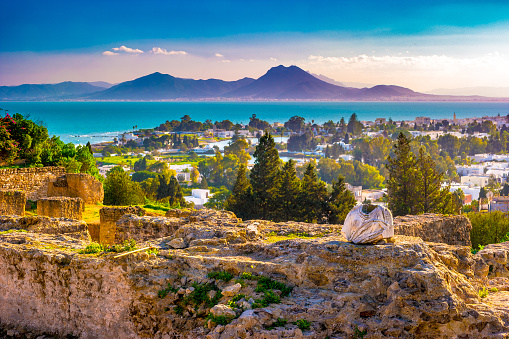Searching for Arginase Inhibitors in Medical Plants Native to Tunisia
9 Ago 2021

Arginase is an enzyme with activity linked to several pathologies, however, many synthetic inhibitors that could potentially treat these diseases are not suitable for use in humans.
Researchers at the University of Bourgogne Franche-Comté in France and the University of Carthage, Tunisia, have been searching for natural inhibitors of arginase that could have some therapeutic effect and have had some success, discovering compounds in plants native to Tunisia.
Arginase plays an important role in the excretory system of mammals, detoxifying ammonia by converting L-arginine to urea and L-ornithine. However, too much arginase in the system can lead to a variety of health problems, including cardiovascular diseases. So far, a number of synthetic inhibitors of arginase have been developed – the most potent being the boronic acid derivatives (S-(2-boronoethyl)-L-cysteine (BEC), 2-(S)-amino-6-boronohexanoic acid (ABH) and Nω-hydroxy-nor-L-arginine (nor-NOHA) – but they have significant drawbacks, with poor pharmacokinetic properties and toxicity. These qualities make them unsuitable for use as drugs, and so scientists have turned to more natural sources to look for alternatives.
Tunisia is renowned for its many diverse plant species and has a strong cultural tradition of using herbal medicines. Currently, the only known natural plant metabolites that exhibit arginase inhibitory effects are polyphenols. This led scientists from the PÉPITE EA 4267 research group at the University of Bourgogne Franche-Comté and the Laboratory of Nanobiotechnology and Medicinal Plants at the University of Carthage to collaborate on a study of native Tunisian plants belonging to different genera and families, to look for new arginase inhibitors.1 Seven plants were chosen based on their biological activity, including antihypertensive, antimicrobial or anti-inflammatory properties: Retama raetam, Rhus tripartita (Ucria) Grande, Artemisia campestris L., Artemisia herba-alba Asso, Myrtus communis L., Crataegus azarolus L. and Rubus ulmifolius. A total of 51 extracts originating from different plant parts were prepared and their arginase inhibitory qualities studied in vitro. A possible connection between a substance’s arginase inhibitory capabilities and its phenolic and flavonoid content was also investigated by mapping the phenolic and flavonoid content of each sample.
Sample Extraction and Analysis
The extracts were prepared by air-drying the various plant parts, grinding them to a fine powder and submerging them in different solvents – hexane, petroleum ether, dichloromethane and methanol – for 24 hours, then filtering to collect the extract. This process was repeated seven times to make sure that the powder was exhausted before analysing the phenolic and flavonoid contents of the combined extracts. Arginase inhibition was studied using a multistep colourimetric procedure, with the results reported relative to ‘100 % arginase activity’. The Type I water (resistivity >18 mΩ/cm) used in the experiments was purified using an ELGA LabWater purification system.
The Results
Analysis of the arginase inhibition of the different plant extracts showed inhibition percentages in the range of 2.66 ± 7.57 % to 90.00 ± 1.53 %, with five of the extracts showing an inhibitory effect of 70 % or more at a concentration of 100 µg/ml. The most promising results were obtained from the methanolic extract of Crataegus azarolus stems, which was the raw material exhibiting the lowest IC50 (41.99 ± 1.577 μg/ml) together with the highest polyphenolic content (161.02 ± 1.24 μg GAE/mg CE). As only a small part of this polyphenolic content was supplied by flavonoids, these are not the main factor determining the inhibition activity.
Informing Future Planning
Since the flavonoid content of Crataegus azarolus did not fully explain the observed activity, the next step is to identify secondary metabolites that could act as arginase inhibitors. As the fruits of Crataegus azarolus have demonstrated antihypertensive properties, it would be interesting to investigate if there is a correlation between the plant’s inhibitory effect and a potential vasorelaxant effect.
Why Choose ELGA LabWater in France?
The presence of impurities in laboratory water can be a major problem in research experiments, and can seriously compromise results. ELGA LabWater has been a trusted supplier or pure and ultrapure water since 1937. We believe in giving you choice in how you use our water purification solutions, supported by excellent service and support. For more information on our Type I ultra pure water systems, check out our PURELAB Quest, PURELAB Chorus 1 Complete and our PURELAB Flex models.
Reference:
1 R. Attia et al. 2019. Phytochemical screening and arginase inhibitory activity of extracts from
several Tunisian medicinal plants. S Afr J Bot 120:313-318.
Contact our French partners today
